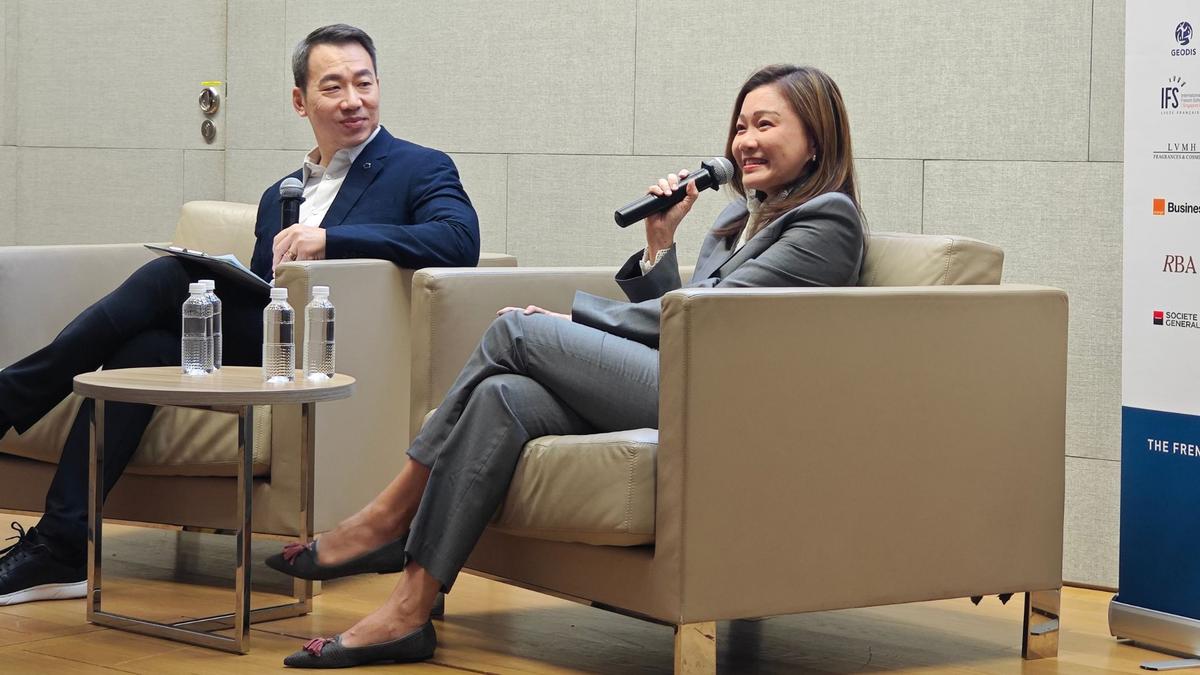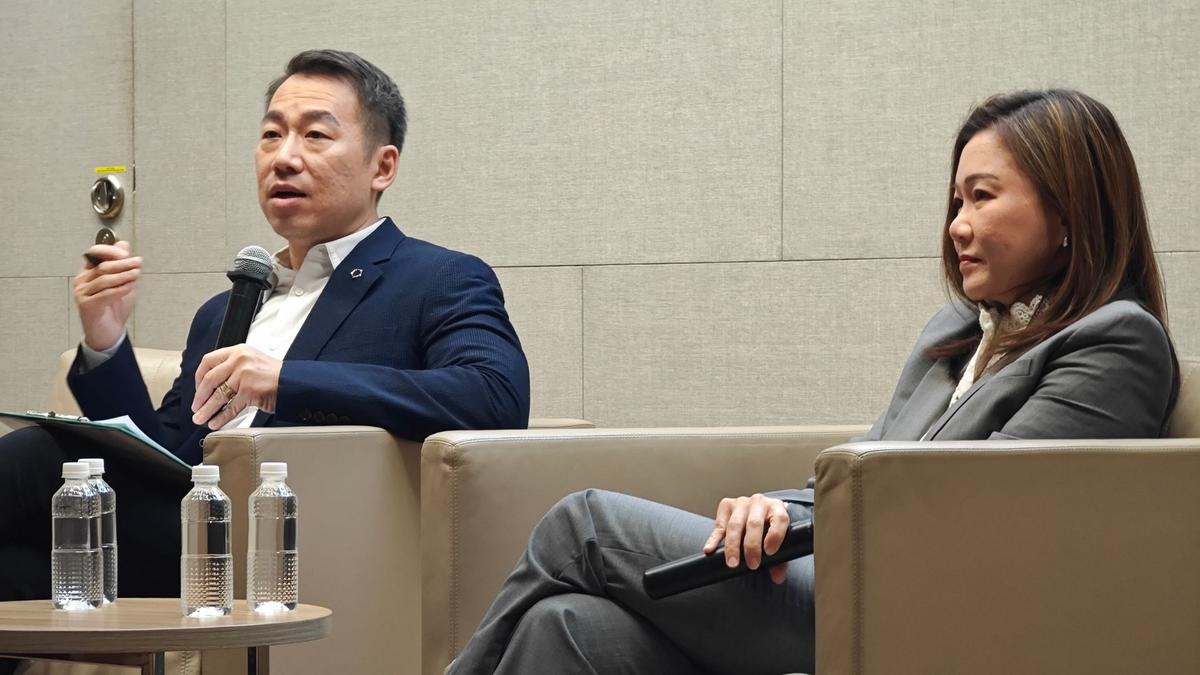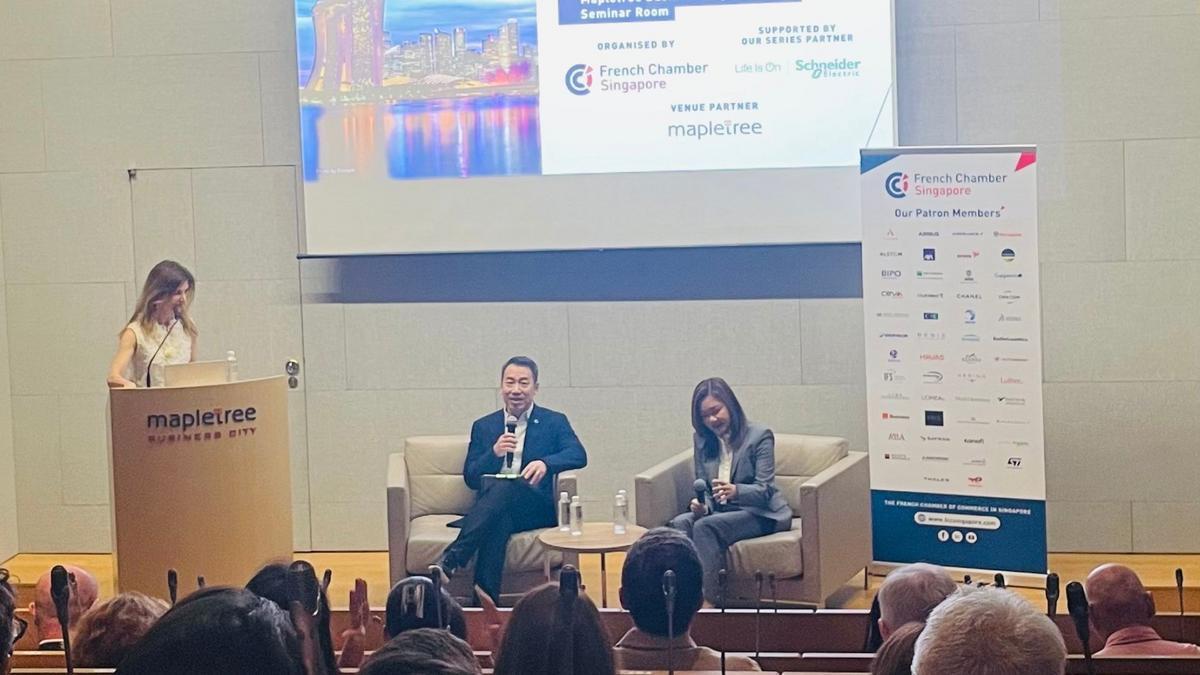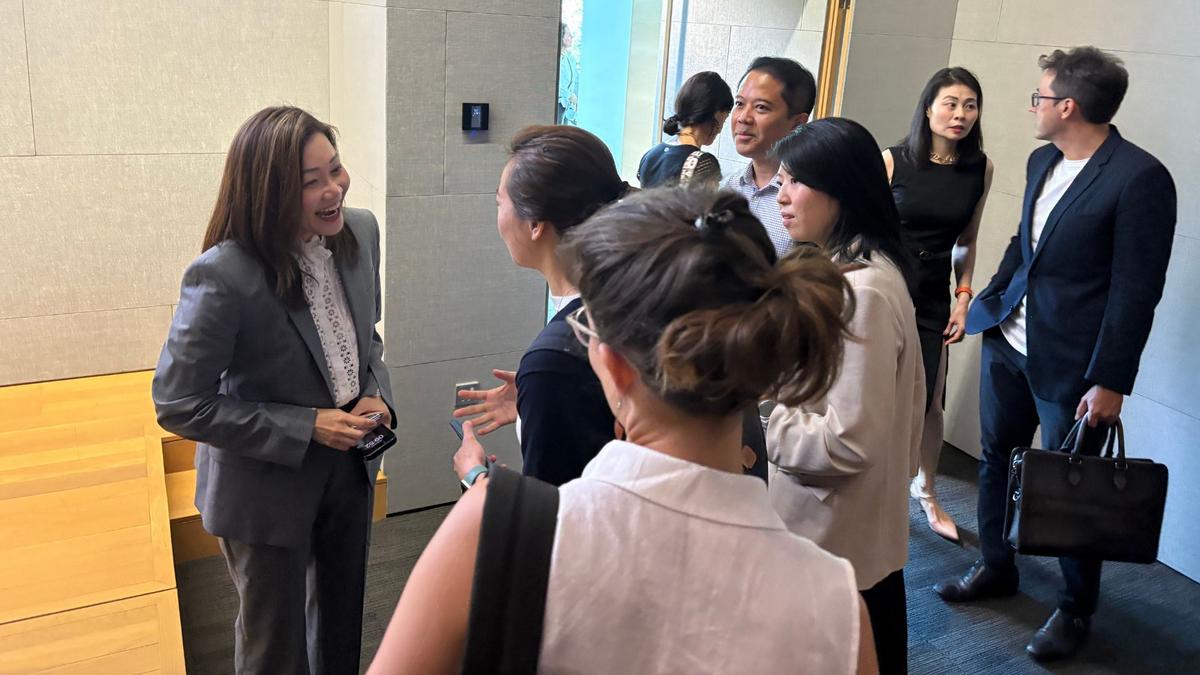Event report
Past Event | A Conversation with Melissa Ow, CEO of Singapore Tourism Board
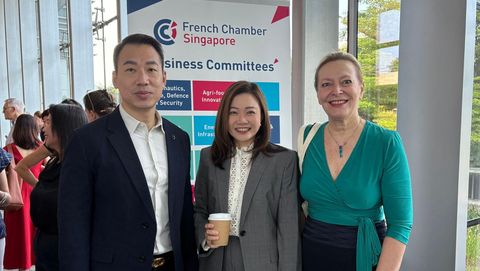
Thank you to Melissa Ow, CEO, Singapore Tourism Board (STB) for an insightful discussion on the future of Singapore's tourism landscape focusing on Singapore's tourism outlook, evolving patterns, market trends, regional collaborations, destination rejuvenation, and future goals.
Moderated by Chris Chong, President South/ South East Asia and Oceania at LVMH Group, this fireside chat was dynamic, engaging, sparking numerous questions from the audience.
Key Insights from the Session:
1. Tourism Outlook
The discussion began by acknowledging 2024 as a strong tourism year, with a reported 5% growth in tourism revenue compared to 2023. For 2025, while the global economy presents challenges and potential weakening consumer confidence, the STB maintains a proactive stance.
To counter any potential dip in tourist arrivals, particularly following an observed decline in Q1 2025 compared to the previous year, strategies will focus on driving the right demand generation. While specific visitor numbers for 2025 were not provided, the emphasis is on maintaining momentum through targeted initiatives. The STB is prepared to assist quickly if a recession impacts tourism, indicating readiness to adapt to economic shifts.
2. Tourism Patterns/Trends
A notable shift in tourist spending patterns post-COVID-19 was highlighted. There's an increasing move towards experiential tourism over purely retail-driven spending. The concept of "slow luxury life" was mentioned, suggesting a desire for more immersive and authentic experiences rather than just acquiring goods. This indicates a broader trend where tourists seek to "get what they see" in terms of unique and curated engagements. Orchard Road, traditionally a retail hub, is evolving to offer more diverse experiences, including live performances, to attract new customers beyond just shopping.
3. Market Outlook
Regarding market changes, Singapore continues to see Mainland China, Indonesia, and Australiaas top source markets for arrivals. The discussion also touched upon a broader segmentation of visitors: one-third from Southeast Asia, one-third from China, and one-third from the rest of the world.
While specific emerging markets were not detailed, the strategy involves using Singapore as a gateway to encourage new tourists. The profile of customers has changed, indicating a need for dynamic adaptation in marketing and offerings. The impact of AI on travel was also noted as a significant factor influencing future market dynamics.
4. ASEAN Collaboration
The recent announcement by Thailand regarding a "Six Countries, One Destination" campaign to promote regional tourism cooperation by the end of 2025 was discussed. This initiative, which includes cruises to explore the region, is viewed as potentially beneficial to Singapore. The strategy is to use Singapore as a gateway for tourists exploring the broader ASEAN region, allowing for expansion and collaboration rather than direct competition.
5. Rejuvenating Destination Offerings for Growth
Impact of Main Events (Concerts & MICE)
The significant tourism impact of major events in 2024, such as the Taylor Swift concerts, was acknowledged. These events successfully compelled and brought in a substantial number of shoppers and visitors. For 2025 and beyond, the focus is on curated programs including flagship events like the F1 Night Race and other major concerts. The goal is to ensure these events continue to draw in substantial tourism, providing compelling reasons for visits.
Luxury Sector Investments & Connectivity
Singapore is actively pursuing new investments to renew and attract visitors, particularly within the luxury sector. This includes the development of new hospitality products and brands, such as Accor's new offerings. Major projects like MBS Phase 2 and the expansion of RWS are key to boosting spending in the luxury sector. The development of wellness and spa retreats is also being positioned as a luxury brand for Singapore.
It was emphasized that building and renewing such attractions takes time, with examples like Gardens by the Bay and Mandai requiring approximately 10 years for full development. These long-term "pipelines" of development plans are crucial for sustained growth.
Connectivity improvements are also underway, including the Changi East development. While specific new connectivity projects for emerging markets were not detailed, the overarching strategy is to invest in infrastructure that enhances accessibility. The luxury sector's influence is increasingly driven by social media and automation to engage with potential clients and through word-of-mouth, highlighting the growing use of technology in this space.
6. Future Goals
The STB's short-term (1-3 year) and long-term (5-10 year) goals are centered on driving the right demand generation and ensuring that development plans are in place. Singapore remains on track to meet these goals, with no major revisions noted.
A significant long-term goal is to grow tourism revenue up to S$59 billion by 2040, supported by initiatives like the T5 terminal and new MICE venues in the downtown area.
These goals align strongly with the growth of the luxury sector. The focus is on creating diverse experiences, not only shopping, to attract new customers. This includes curating exclusive experiences with brands, such as Chanel cruise experiences, to "bring the brand to life" beyond just product acquisition.
A critical factor in reaching these goals is acquiring talent. The discussion highlighted that productivity comes with transformation, necessitating enhanced training, career development, and recognition within the industry, especially given Singapore's limitations in bringing in foreign talent.
This discussion underscored Singapore's strategic approach to tourism, balancing immediate recovery with long-term growth, and leveraging both major events and infrastructural developments to enhance its appeal as a premier destination, particularly for the evolving luxury market.
This event was supported by our series partner: Schneider Electric.
Special thanks to our Venue Partner: Mapletree Business City
For more information, contact Coralie Vincens at cvincens@fccsingapore.com
